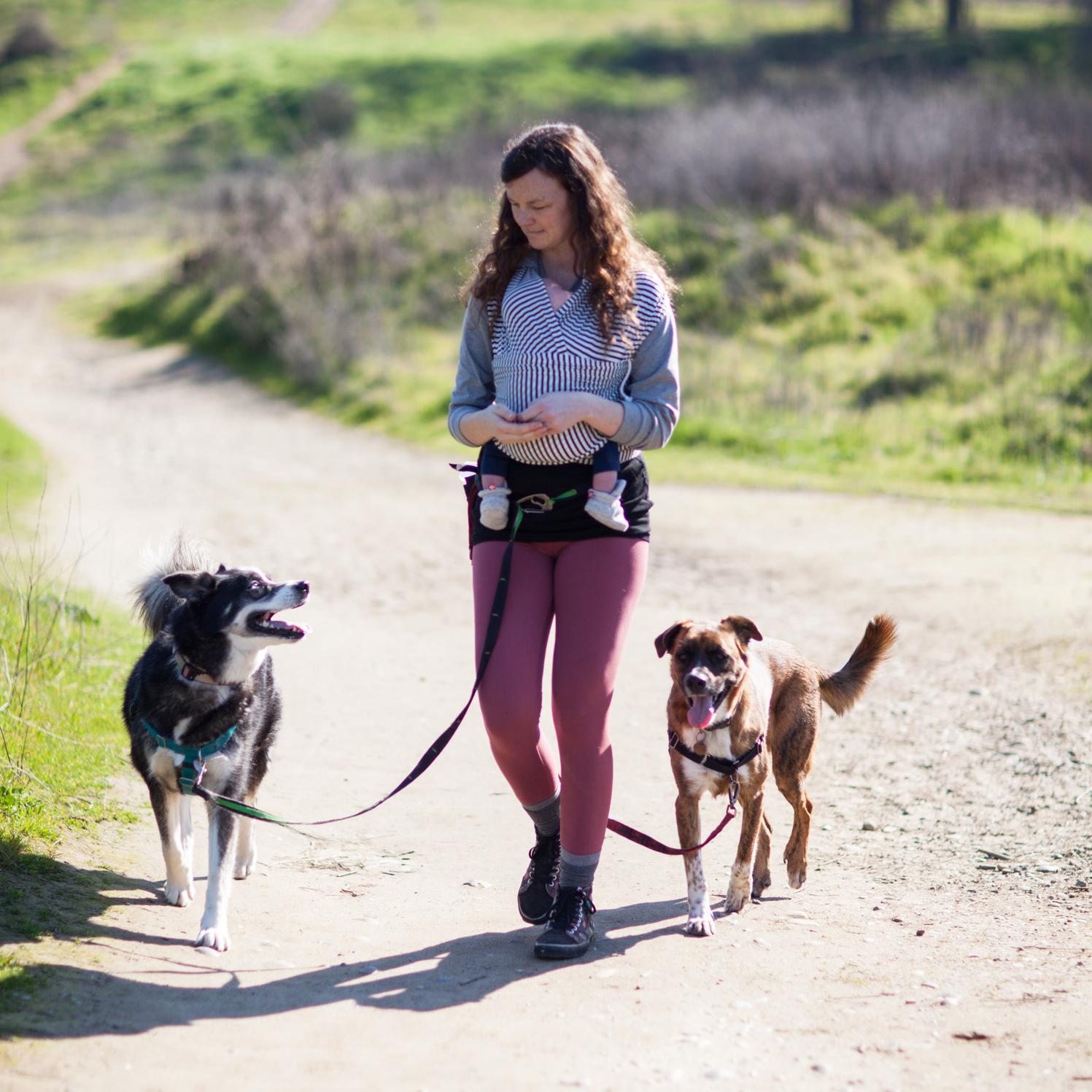As a behavior consultant, I get a lot of calls and emails about dogs that bite "all of a sudden," "randomly" or "without warning." Rarely, if ever, do I meet a dog that actually bites without warning or provocation.
I'll give you an example. Just this week, I got a call from a man who was concerned because the dog he had adopted several months ago was "a biter." When I asked him in what kinds of situations the dog was biting he said it happened all the time, without warning. The dog had bitten the man a few times, but mostly he was biting the kids (teenagers). And it was getting worse.
I began by asking the man to describe the the most recent bite incident. His daughter was putting on his dog's harness. I asked for more descriptions of times when bites may have occurred. One example he gave was when the family was eating dinner, the dog was poking around beneath the table looking for food, and the son began to shoo him away and tell him to get out of there. The next example was when the son had the fridge open, and the dog came over to sniff again for food. When the boy yelled at him and tried to get him to leave, the dog lunged and bit.
The man commented that his wife spoke to the dog in a "baby voice" and she had never been bitten. He himself had rarely been bitten - it was mostly the kids. So my next question was this, "Would you say that all the good things the dog receives come from you? Food, playtime, walks?" Yes. "And would you say that the kids tend to become more frustrated with the dog and tend to scold, reprimand, or punish him more often?" Yes.
The issue was obvious. The relationship between the children and the dog was not working. The dog felt safe with the wife, who spoke softly to him, and more or less had built a trusting relationship with the father, from whom all good things come. Things were escalating likely because the dog had learning that a simple growl or snap were not effective at creating space between himself and the children, who were often raising their voices or physically ejecting him from spaces where he wanted to be. So he'd escalated his approach. Biting creates space.
It had not occurred to this family to teach the dog what behaviors they would like for him to do. For example, laying on a bed during meal times instead of hunting for morsels. It had not occurred to them to manage his behavior so that he was unable to perform behaviors that they'd prefer he not rehearse - for example, setting up a gate to block off the dining area or kitchen. And now they wanted to teach him to stop growling, biting and lunging.
Here's my solution for this family, and for anyone who may be dealing with behaviors like growling or snapping: make a list of any time this has happened. What was going on before or during the growl, snap, or bite? Was the dog being handled roughly, or in a way that he was not used to? Was a valuable resource being taken from the dog? Was a child approaching the dog while she had something valuable, or while she was relaxing in a preferred resting place? Was petting, hugging, or kissing being given to a dog that was stiff, attempting to move away, or trying to do something else?
Take this list and ask yourself not, "How can I make my dog stop growling in this situation?" but rather, "How can I make sure my dog doesn't feel the need to growl in this situation?"
Can I teach my dog to cooperatively put on equipment like a harness? Can I make sure that a familiar, well known adult is doing the handling? Can I make sure my dog is only given valuable resources in a comfortable and safe spot where no one will make her feel as though it may be removed? Can I teach my dog to trade items for other items of equal or greater value? Can I implement consent tests, be mindful of my dog's body language, and actively supervise my children to make sure everyone in the family is respecting his bodily autonomy?
A growl is a communication, and generally one that has come only when other more subtle means of communicating have failed. If we ignore the growl, or worse yet, punish it, it will escalate into a snap, or eventually a bite. Listening to our dogs will give us the information we need to create a safe, comfortable home for both them, and our children - we just have to be a little less human and a little more dog.

